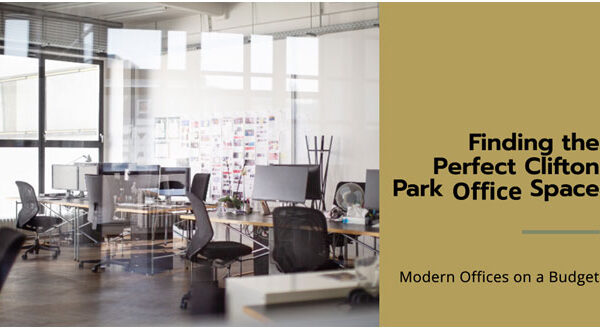
It can be exciting when you’re on the hunt for new office space. However, jumping in without a plan is often fraught with danger. In fact, it’s all too common for small businesses to make mistakes while leasing office space.
Owners get overly excited and make crucial mistakes that can prove costly for the business. Some errors could even slow the growth of the company itself. Often, rent is the second highest expense that businesses have to deal with. Therefore, doing things right the first time can potentially save you untold amounts of money down the line.
Let’s look at 5 mistakes that small businesses make when leasing office space so that you can learn what not to do the next time you find yourself in the market.
1) Procrastinate
We’re all familiar with procrastination. It’s that thing we do when we put off important work. Procrastinators often have the “I’ll just do it tomorrow” attitude. The problem with that type of thinking is that tomorrow typically never comes until it’s too late.
Procrastination can be the kiss of death for a small business owners hunting for office spaces. Generally, you should begin searching for an office space at least six months in advance before moving out of your current space. Looking this far in advance gives you time to check out prices, the surrounding area, and just get a general feel for how the market is.
Searching last minute may put you in a position where you might have to settle. Whether you’re settling with a building that’s too small, too big, disagreeable rent, a bad area or any number of factors, you will always be at a disadvantage. So do yourself a favor and search early. You may potentially save yourself thousands of dollars.
2) Relying on just listings
Most of the time, Google is your best friend. In this instance, it might just work against you. The temptation to find office listings through a Google search can be tantalizing, and while it can give you a general snapshot of the market in a particular area, you might just be led astray if you’re not careful.
Sometimes, online listings can be inaccurate. Plus, it’s in the landlord’s best interest to get a business owner down to the property as fast as they can where they’ll have a leasing agent ready to make the big sale.
Oh, and the sale has to happen today, or the “exclusive” deal will go away. This puts pressure on the business owner which may cause them to make a purchase without truly understanding what they’re getting in to.
3) Doing everything alone
You’re a business owner; therefore you have a good sense of how to negotiate fair deals and whatnot. Right? That type of thinking can leave a business owner with a potentially bad buy. Leases can be very complex in the way they’re worded, and they can often change depending on the type and size of the space. Also, it’s generally advised that you should never sign a lease for a space larger than 2000 square feet without a trained professional at your side, poring over each line of the contract with you.
There are just too many variables to a tenant lease for someone who isn’t trained to try to go it alone. Bring a good tenant broker with you. There can be hundreds if not thousands of small variables that may fly under your radar. However, a trained tenant broker might be able to catch most of the things that you miss.
Tenant brokers represent your best interests. The best trained tenant brokers will take care of all of the legal complexities that go with signing a contract and will get you the best deals with the fairest lease terms.
With all of the hidden information that can be found in leases, you should never take a chance. Often, a tenant broker can save their client up to 25% of the total value of the lease.
4) Going in with no research
Sadly, many business owners take a chance and go in blind and end up getting burned on certain aspects of the contract (such as rent). If they had just done even a small bit of research, they might have been able to negotiate a better deal.
All business owners should have a general understanding of how they should go about leasing a commercial space before they even start looking. They don’t have to be experts, but they should know just enough to be dangerous. Going into a deal with as much knowledge as you can is a good way not to get ripped off.
Understand your advantages, identify pitfalls and recognize your rights as a tenant before getting into a contract. Signing the dotted line on a lease you don’t understand could have disastrous consequences for any small business.
5) Acting on an impulse
Remember, renting an office space is a major decision for a small business. Not only does it take a toll on finances, but it can also affect factors such as growth. Thus, detaching yourself from your emotions is vital to help you make the most informed decision that you can possibly make.
Spend more than a few hours during the research phase. Put in your due diligence and find out as much as you can. Take into account the things that matter most:
Can you afford the rent? Do you plan on growing? How much space do you need? Do you need a parking lot? Etc.
Lastly, do your best not to be seduced by a real estate agent because it’s their job to close you right then and there. Leave the emotions at the door.
Avoid these mistakes
One of the most significant investments that a small business can make is leasing office space. Performing your due diligence will make you an informed consumer which will allow you to understand all of your options. Furthermore, there’s no shame in bringing a professional with you if you’re not sure how the process entirely works. There’s too much at stake to make dire mistakes. Get it right the first time so that you won’t regret it later on down the line.




